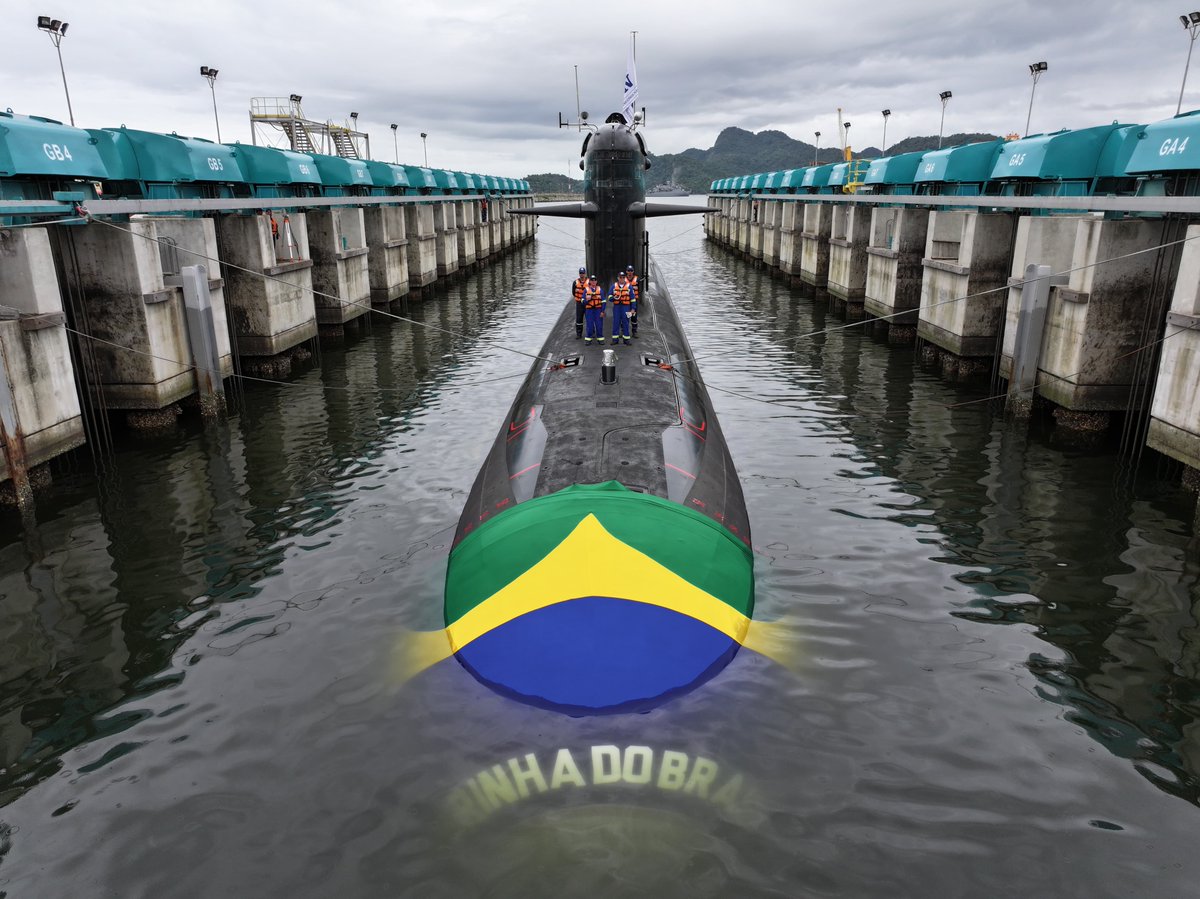
Brazil reached a historic milestone today as the Tonelero, the third Scorpène® submarine of the ProSub program, was launched at the Itaguaí Naval base amidst the distinguished presence of both Brazilian and French Presidents. This event not only marks a significant advancement in Brazil’s naval capabilities but also underscores the successful collaboration between Brazil’s ICN and France’s Naval Group, showcasing the nation’s growing prowess in submarine construction.
The Tonelero stands as a testament to Brazil’s emergence as a key player in submarine manufacturing, having been built entirely in Brazil by ICN through a successful Transfer of Technology (ToT) partnership with Naval Group. Former Brazilian President Lula da Silva aptly remarked during the event, “Today Brazil is part of a small group of countries that master submarine construction. ProSub is Brazil’s largest and most important international defense cooperation project.” This achievement highlights Brazil’s dedication to developing its indigenous defense capabilities and solidifying its position as a leader in naval innovation.
French President Macron echoed this sentiment, emphasizing the significance of the shipyard established for submarine production, noting it as one of the most modern in the world and the only one of its kind in South America. The partnership between Brazil and France extends beyond submarine construction, encompassing the development of an extensive industrial infrastructure complex to support submarine operations. This complex includes shipyards, a naval base, and a metal structure manufacturing unit in Itaguaí, further enhancing Brazil’s maritime capabilities and bolstering its strategic defense posture.
The ceremonial launch of the Tonelero was a moment of pride and celebration, symbolized by Brazil’s First Lady Janja da Silva christening the submarine with a champagne bottle on its bow, followed by the activation of a lever by the two presidents, sending the Scorpène-class vessel gracefully into the sea. This symbolic gesture not only commemorates the culmination of years of collaboration and dedication but also heralds a new era of maritime power and sovereignty for Brazil.
The ProSub program, initiated in 2008 during Lula’s previous presidential term, represents a long-term strategic partnership with France’s state-run Naval Group, with defense contractor Thales holding a significant stake. This partnership underscores the mutual commitment to advancing naval capabilities and fostering technological innovation, laying the foundation for enduring cooperation between Brazil and France in the realm of maritime defense.
As the Tonelero joins its predecessors, the Riachuelo and the Humaitá, in Brazil’s burgeoning submarine fleet, it symbolizes Brazil’s determination to safeguard its maritime interests and assert its presence in regional waters. With its advanced technology, stealth capabilities, and strategic significance, the Tonelero exemplifies Brazil’s journey towards self-reliance in defense and its aspirations to play a leading role in shaping the future of maritime security in the South Atlantic region.
